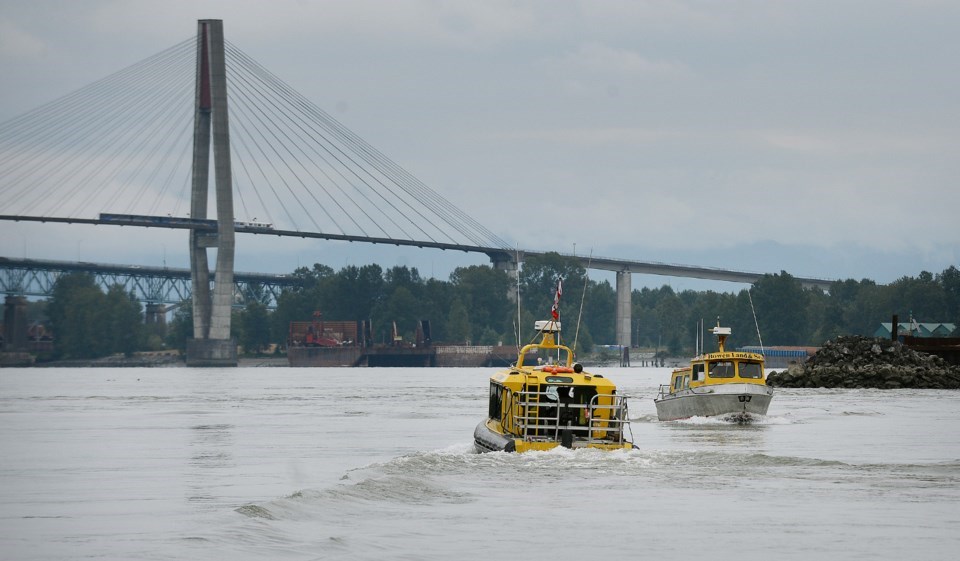Ridership on the Q to Q ferry has plunged during the pandemic but the city is hopeful riders will resurface as public health orders change.
Operated by Bowen Land and Sea Taxi (BLaST), the ferry service transports folks between the Queensborough and Quayside neighbourhoods. Two 12-passenger water taxis had been transporting passengers between the two neighbourhoods before ferry service ceased on March 20, 2020 in response to public heath orders.
The Q to Q resumed service in November 2020 with a limited schedule and with a number of safety protocols in place. Instead of being able to operate at full capacity, the ferry has only been able to sail at half capacity.
“Since restarting, ridership has been roughly 30% of previous year levels,” said a June 28 report to council.
According to the report, the number of passengers increased by 33% from January to April 2021, but it still remained at about 30% of the previous year’s numbers.
“This growth in service is not surprising as, historically, the service is more popular when the weather is warmer and drier,” said the report. “However, the demand for the service remains 70% less than what it had been in the same months in 2020 (January and February) and 2019 (March and April).”
The report stated there is “typically and increased demand” for the ferry service as the weather warms up and the nights are longer.
“It is anticipated that as the province enters Step 3 of the BC Restart Plan, the ferry will resume full capacity, which will see the allowable number of passengers per trip double to 12 people from the six previously allowed inside the cabin,” said the report. “It is expected that with the ability to run the service at full capacity, demand will be met, although there may be periods of time, particularly on the weekend, when passengers may experience a one-sailing wait.”
City staff explored the idea of providing an additional boat on weekends and statutory holidays, but determined that the current budget isn’t sufficient to support an increase in the hours or frequency of service.
“To deploy a second boat, BLaST requires a minimum of 16 hours per week of service, distributed in a minimum of four-hour shifts,” stated the report. “The additional 16 hours would result in an additional $14,688 per month, just for the service, not including any other administrative or COVID safety materials, like masks and cleaning supplies. This additional cost cannot be accommodated in the current budget.”
The City of New Westminster’s 2021 operational budget includes $500,000 for the ferry operations.
“With cautious optimism, it is expect that the BC ReStart Plan will have a positive impact in terms of increasing use of public transit, being in public spaces and returning to workplaces,” said the report. “It is anticipated that over time the demand for the service will return to pre-COVID numbers, and that some growth in ridership will occur over the next few months.”



